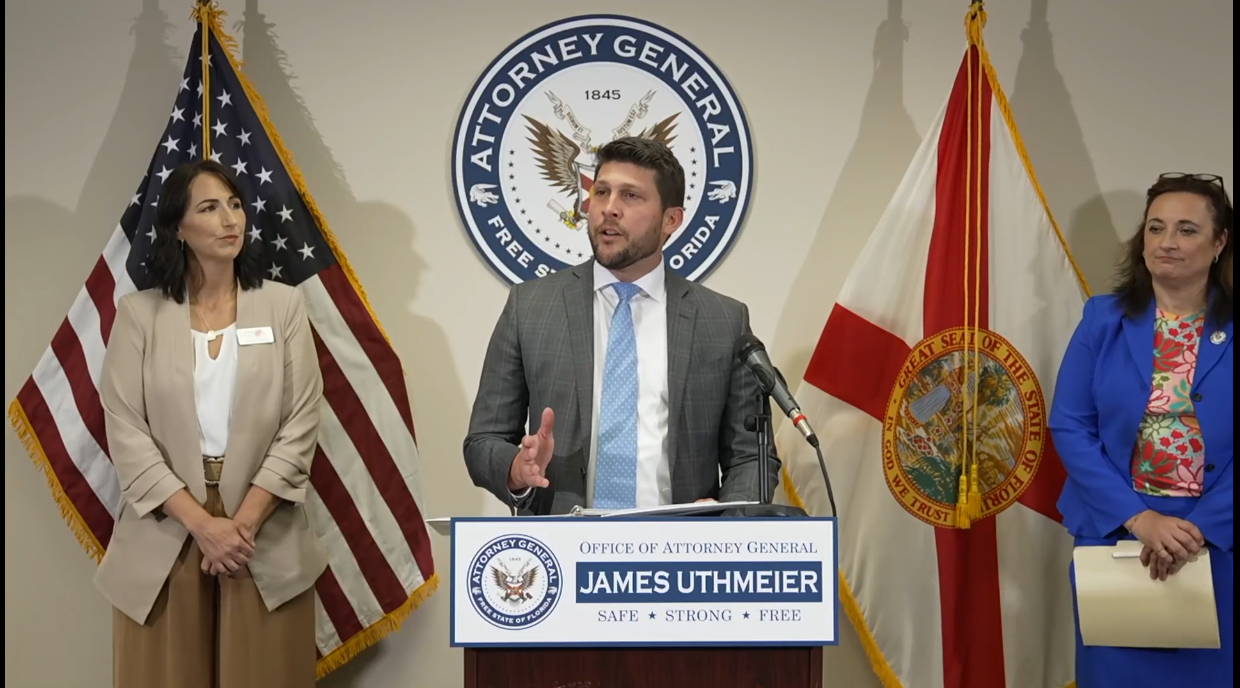A measure is advancing to the House floor that seeks to reduce the cost of child care and make affordability a priority
The Health and Human Services Committee unanimously passed the bill (HB 47), which was presented by Sarasota Republican Rep. Fiona McFarland. She said it aims to improve access to affordable child care for working families by reducing red tape without compromising safety or education quality.
“Child care, day care and preschool are words that all mean the same thing. It’s what you do with your child between ages 0 and 5, and for those of you that haven’t had a 0- to 5-year-old in your life lately, you have to pay for it as a parent,” McFarland said.
“We’ve decided as a state that we’re constitutionally required to provide free education for children in K-12, but we don’t talk about what happens before that child turns 5.”
The legislation aims to make several reforms including exempting preschools from special tax assessments, moves teacher training and testing online for free, allows streamlined inspections for top-rated providers, grants license-exempt status to employer-provided child care, and closes a loophole that affects family child care homes.
The bill would further reduce the time the Department of Children and Families (DCF) has to conduct a background screening for needed teachers. McFarland noted her own struggle to find sufficient day care in her own district having five children, four of whom are under the age of 5 years old.
“It does various measures to reduce the cost of child care and hopefully incentivize more demand to enter into the system,” McFarland said. “It streamlines inspections of facilities by encouraging abbreviated Inspections for providers in good standing. To help providers find teachers, it reduces the amount of time DCF has to spend on the background screen down to three days.”
McFarland explained that the bill removes various outdated sections of law, while updating a definition for family child care homes, and adding a provision for Department of Defense military child care facilities to be license exempt.
“My favorite part is it creates a license exempt category for child care that’s offered by their employers,” McFarland said.
“Last year you all voted on a bill that created a tax credit for employers that want to build or provide their own child care. And this is part two of that, which is say if an employer is going to make their own child care that’s just for their workforce, for their employees children or grandchildren to go, then they can be license exempt which is a status that we have for faith-based … child care providers.”
Weston Democratic Rep. Robin Bartleman asked about the licensure requirements for child care facilities able to get an exemption, and how they would operate.
In response, McFarland said the teachers working at license exempt child care facilities would still have to go through background screening, would be required to have appropriately qualified staff, and would still need to be accredited and in compliance with all health and safety requirements.
McFarland said she hopes more employers “see that this is a measure of the state wanting to partner with them, to help us solve the child care affordability and access crisis that we have in this state and this country.”
Fort Pierce Republican Rep. Dana Trabulsy supported the bill and thanked McFarland for her past legislation that implemented tax credits.
“Thank you for this bill and for all the work that you do in early learning,” Trabulsy said. “Every year you just move the needle a little bit further, and it’s so appreciated, and I would be truly remiss if I just didn’t thank you publicly for the bill that you passed last year with the tax credits.”
Trabulsy said her own daughter and her husband were able to take advantage of the tax credits and now save money on child care every year.
“My daughter has two children and the company that my son-in-law works for has taken advantage of the tax credits and although the company that he works for couldn’t afford give him a raise this year, what they could do was offer this benefit so it’s like putting $7,200 back in their pocket every year, and that’s a big amount when you’re raising a family,” Trabulsy said.
Stuart Republican Rep. Toby Overdorf also supported the legislation and commended McFarland for identifying barriers and looking for solutions.
“What I appreciate about this bill is that you identify barriers and then you look for ways to access,” Overdorf said. “What you’ve done here is, you’ve done a really true balancing act, between those things. You’re balancing the safety of a child that a parent is leaving, with that parental choice, of the place that you want that child to go to.”
McFarland said in closing that she hopes the bill helps lower costs for parents and encourage more employers to get involved.
“Parents everywhere are really hurting on how expensive child care is. I hope that this helps, even just a little bit,” McFarland said. “Hopefully with legislation like this we can encourage more bosses to be great about employees with babies.”
Post Views: 0

 Politics8 years ago
Politics8 years ago
 Entertainment8 years ago
Entertainment8 years ago
 Entertainment8 years ago
Entertainment8 years ago
 Entertainment8 years ago
Entertainment8 years ago
 Tech8 years ago
Tech8 years ago
 Tech8 years ago
Tech8 years ago
 Tech8 years ago
Tech8 years ago
 Politics8 years ago
Politics8 years ago










